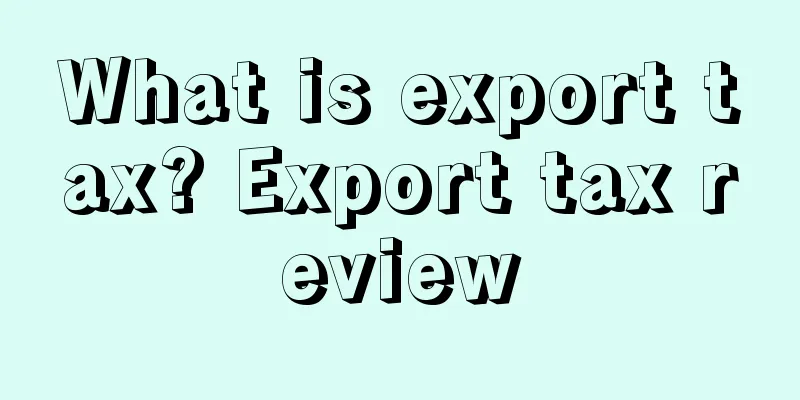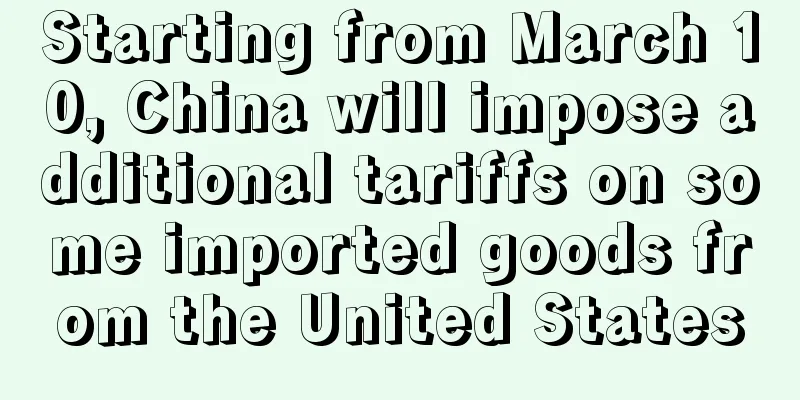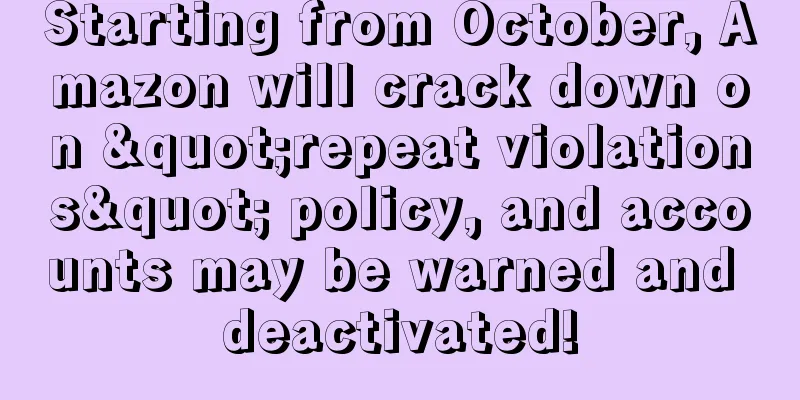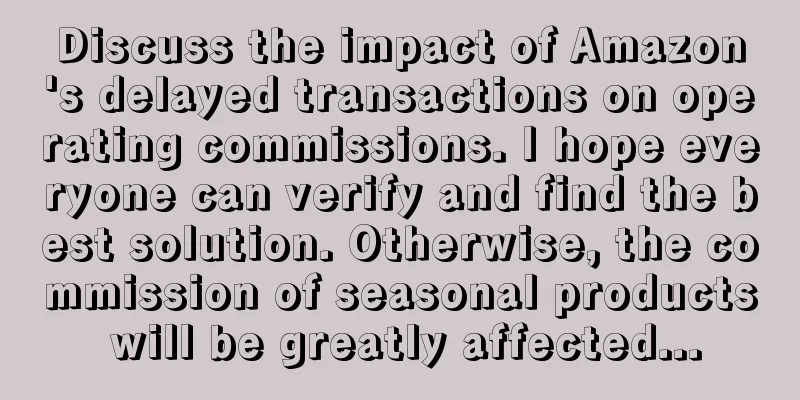What is export tax? Export tax review

|
Export tax refers to the tariff imposed by the customs of the exporting country on the exporter or the individual leaving the country when the goods and articles of the country are exported to foreign countries. The objects of export tax are not limited to the foreign trade goods that enter and leave the country as commodities, but may also include the articles carried, checked or mailed by passengers. Since the imposition of export tax will increase the sales price of domestic products in foreign markets and reduce competitiveness, countries rarely impose export tax . 1. Concept Interpretation Export tax refers to the tariff imposed by the customs of the exporting country on the exporter or the individual leaving the country when the goods and articles of the country are exported to foreign countries. The objects of export tax are not limited to the foreign trade goods that enter and leave the country as commodity circulation, but may also include the articles carried, consigned or mailed by passengers. The countries that impose export tax are mainly some developing countries, and their main purpose is to increase fiscal revenue, ensure domestic supply, protect domestic resources, etc. Over the past century, the international market has been highly competitive. In order to avoid reducing the international competitiveness of their products, countries have rarely used export tariffs. However, in some cases, it still exists because of its protective effect. my country also imposes export tariffs on a very small number of commodities, mainly focusing on high-energy consumption, high-pollution, and resource-based products. According to the "Notice of the Tariff Committee of the State Council on the Adjustment Plan for Provisional Import and Export Tax Rates in 2019", from January 1, 2019, export tariffs or provisional export tax rates will continue to be levied on 108 export commodities such as ferrochrome, and the tax rates will remain unchanged, and 94 provisional export tax rates will be cancelled. 2. Function According to the practices of various countries, export taxes generally have the following functions: 1. Increase domestic fiscal revenue; 2. Protect domestic resources and environment; 3. Ensure domestic market supply; 4. Meet other political or economic needs. 3. Basic Content Export tariff rate my country's export tariff is a column of tax rates, namely export tax rates. The state only imposes export tariffs on a few resource products and semi-finished and finished products that are easy to compete for price, export blindly, and need to regulate the export order. In 1992, my country levied export tariffs on 47 commodities at a rate of 20%-40%. The current tariff imposes export tariffs on 108 commodities, mainly eel fry, some non-ferrous metal ores and their concentrates, raw antimony, phosphorus, potassium tantalate, benzene, goat skins, some ferroalloys, steel scraps, copper and aluminum raw materials and their products, nickel ingots, zinc ingots, and antimony ingots. The tariff rates of export commodities have not been adjusted, but a provisional tariff of 0-20% is imposed on 78 commodities within the above range, of which 51 commodities are zero tariff and 14 commodities are taxed at 10% or less. Like the provisional import tariff, the provisional export tariff shall take precedence over the export tariff specified in the export tariff. Dutiable value of exported goods 1. Dutiable value based on transaction price The dutiable price of export goods is determined by the customs based on the transaction price of the goods sold abroad, and should include the transportation and related expenses and insurance premiums before the goods are loaded at the export location in my country. However, the export tariffs included in it should be deducted. The transaction price of export goods refers to the price actually paid or payable by the buyer to the seller when the goods are exported and sold outside my country. If the transaction price of export goods includes commissions paid to foreign countries, if they are listed separately, they should be deducted. 2. Customs valuation method for export goods When the transaction price of exported goods cannot be determined, the customs shall use the following methods to estimate the dutiable price: a. the transaction price of identical goods exported to the same country or region at or about the same time; b. the transaction price of similar goods exported to the same country or region at or about the same time; c. the price calculated based on the cost, profit and general expenses of producing identical or similar goods domestically, and the transportation and related expenses and insurance premiums incurred domestically; d. the price estimated in accordance with a reasonable method. Regarding the import and export of goods in bonded areas and export processing zones 1. Bonded area import and export goods In order to create a perfect investment and operation environment, and to carry out processing, packaging, transportation, warehousing, commodity exhibition and re-export trade for export trade, the state has established bonded areas within the country, that is, special areas for storing and processing bonded goods in a fully enclosed manner isolated from the outside world under the supervision and management of the customs. The main tariff preferential policies of the bonded areas are: a. Imported machinery and equipment, infrastructure materials, and production vehicles for use in the bonded areas, raw materials, parts, components, and packaging materials imported for processing export products, re-export goods for storage, and products processed and transported out of the country in the bonded areas are exempt from import tariffs and import-related taxes; b. Raw materials, parts, packaging materials, and re-export goods imported by enterprises in the bonded areas for the production and processing of export products are bonded; c. Goods shipped from the bonded areas to foreign countries are generally exempt from export tariffs, etc. 2. Export and import goods in export processing zones In order to strengthen and improve the management of processing trade, control the domestic sales of processing trade products, protect domestic related industries, provide a more relaxed operating environment for export processing enterprises, and promote the export of domestic raw materials and spare parts, the state has established export processing zones. The main tariff preferential policies of export processing zones are: a. The machines, equipment and production plants required for the construction of productive infrastructure projects entering the zone from abroad, the infrastructure materials required for storage facilities, the machines, equipment, molds and spare parts for maintenance required by enterprises in the zone, and a reasonable number of office supplies for the self-use of enterprises and administrative agencies in the zone are exempted from import tariffs and import-related taxes; b. The raw materials, spare parts, components, packaging materials and consumable materials required by enterprises in the zone for processing export products are bonded; c. For goods shipped from the processing zone to outside the zone, the customs shall handle the customs declaration procedures in accordance with the relevant regulations on imported goods and levy taxes in accordance with the finished products; d. Goods entering the processing zone from outside the zone are deemed to be exported, and export tax rebates can be handled in accordance with regulations. About export tax rebate Export tax rebate refers to a measure by which the state uses tax leverage to reward exports. It is generally divided into two types: one is the refund of import taxes, that is, when export product enterprises use imported raw materials or semi-finished products to process and export products, they will refund the import taxes they have paid; the other is the refund of paid domestic taxes, that is, when enterprises declare goods for export, they will refund the domestic taxes they have paid for producing the goods. Export tax rebates are conducive to enhancing the competitiveness of domestic products in the international market and are widely adopted by countries. Export tax rebates must meet the following four conditions: (1) The goods must be within the scope of VAT and consumption tax collection. The scope of VAT and consumption tax collection includes all VAT-taxable goods except tax-free agricultural products purchased directly from agricultural producers, as well as 11 categories of consumer goods subject to consumption tax, such as tobacco, alcohol, and cosmetics. This condition is necessary because export tax refunds (tax exemptions) can only be made on goods that have been subject to VAT and consumption tax, and their tax amounts and tax payables can be refunded or exempted. Goods that have not been subject to VAT and consumption tax (including goods that are tax-free as stipulated by the state) cannot be refunded, which reflects the principle of "no refund if not levied". (2) The goods must be declared for export. Export refers to the exit from the customs, including self-operated export and entrusted export. Distinguishing whether the goods are declared for export is one of the main criteria for determining whether the goods are within the scope of tax refund (exemption). Unless otherwise provided for, goods sold domestically and not declared for export shall not be considered as exported goods for tax refund, regardless of whether the exporting enterprise settles in foreign currency or RMB, and regardless of how the exporting enterprise handles the matter financially. Goods sold domestically and receiving foreign currency, such as goods received by hotels and restaurants, etc., do not meet the export conditions and are therefore not eligible for tax refund (exemption). (3) Goods must be treated as export sales in financial terms. Export goods can only be refunded (exempted) after they are treated as export sales in financial terms. In other words, the provisions on export tax refund (exemption) apply only to trade-related export goods, while non-trade-related export goods, such as donated gifts, goods purchased by individuals in China and taken out of the country by themselves (except as otherwise provided for), samples, exhibits, mailings, etc., are generally not treated as sales in financial terms and therefore cannot be refunded (exempted) according to the provisions. (4) Goods must have received foreign currency and been written off. Goods exported by foreign trade enterprises must meet the above four conditions at the same time in order to apply for tax refund (exemption). Production enterprises (including production enterprises with import and export rights, production enterprises that entrust foreign trade enterprises to act as export agents, and foreign-invested enterprises) must add one more condition when applying for tax refund (exemption) on exported goods, that is, the goods applied for tax refund (exemption) must be the production enterprise's self-produced goods or goods deemed to be self-produced goods. References |
<<: What is transit tariff? Transit tariff review
>>: What is UL certification? UL certification evaluation
Recommend
What is Qianmo International Logistics? Qianmo International Logistics Review
Qianmo International Logistics (Shenzhen Qianmo In...
Amazon updated two major services, increasing conversion rate by 2 percentage points!
As we all know, Amazon often updates its policies...
What is Buzz Sumo? Buzz Sumo Review
Buzz Sumo is a content marketing platform that hel...
What is Gesellschaftsvertrag? Gesellschaftsvertrag Review
Articles of Association or Company Contract Type G...
Amazon US product selection tool is officially launched!
I believe many sellers have noticed that the add ...
Amazon’s “Special Price Store” is about to be launched, and these categories may be very popular!
It is learned that in June this year, Amazon invit...
Temu front-end prices skyrocketed overnight! Fully managed sellers' sales plummeted?
At the beginning of 2025, the repeated changes in ...
Will staying in a small county and working on Amazon alone lead to a slow death? At the age of 32, should I leave my wife and children and go to Qingdao or Yiwu to develop on my own?
A small county town in Shandong, 18th tier, with 7...
Sellers are collectively furious! Autumn sales are dismal, is Amazon "forcing" sellers to lower prices?
Normal, once there is data abnormality, such as s...
Amazon's warehouse logic is sorted out. Please avoid shipping from these dead warehouses
Amazon's warehousing logic: The warehouse you ...
What is Photonpay? Photonpay Review
PhotonPay is a cross-border payment platform under...
Amazon Operations Level College Entrance Examination Self-Test Answers
Amazon Operations Level College Entrance Examinati...
Are sellers' shipments frequently canceled? Amazon adjusts storage limits
On Monday morning, some sellers came to ask me wh...
Sellers must know! Updates and adjustments to Amazon FBA fees in 2019
<span data-shimo-docs="[[20,"近日,亚马逊调整了FBA费...
Food and energy costs rise! US import prices rebound in September!
It is learned that according to foreign media repo...









